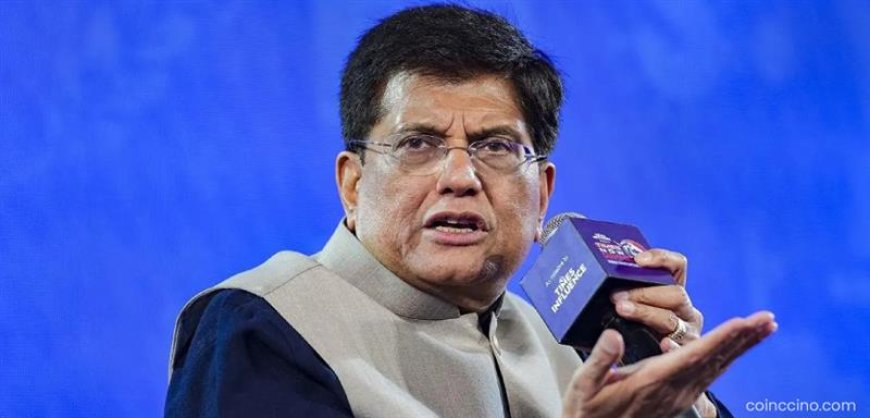India Plans RBI-Backed Digital Currency, Says Union Minister Goyal
Union Minister Piyush Goyal has announced that India is preparing to unveil a digital currency backed by the Reserve Bank of India (RBI). The proposed digital rupee aims to make transactions faster, more traceable, and paperless. Meanwhile, the government continues to discourage use of privately issued cryptocurrencies lacking sovereign backing.

Market Context
Globally, central banks are increasingly exploring central bank digital currencies (CBDCs) as a bridge between traditional finance and blockchain innovation. India’s move places it among other major economies racing to modernize payment infrastructure while retaining monetary sovereignty. At the same time, private crypto assets remain regulated with caution in many jurisdictions due to volatility and lack of guarantees.
Technical Details with Attribution
- Goyal stated that the upcoming digital currency will operate similarly to fiat currency—but with added benefits like traceability, speed, and efficiency.
- He emphasized that while private cryptocurrencies aren’t banned outright in India, they are heavily taxed to discourage speculation and protect consumers.
- According to the Economic Times version of the report, the digital currency is intended to reduce paper usage and enhance transaction traceability compared to traditional banking systems.
- The plan aligns with earlier RBI efforts: India already launched e-rupee pilots (both wholesale and retail) starting in December 2022, using blockchain or tokenization techniques.
Analyst Perspectives
Analysts view this announcement as a logical, if ambitious, step toward digital modernization. If well designed, a sovereign digital currency could streamline payments, reduce costs, and integrate well into India’s digital economy. However, success hinges on interoperability, privacy design, adoption by banks and merchants, and managing public trust. Some warn that overzealous traceability or enforcement features might raise privacy or regulatory concerns.
Global Impact Note
If India rolls out a robust, widely used digital rupee, it could influence neighboring and developing economies to follow suit—especially in regions where cash infrastructure is weak or costly. The move may also set benchmarks for CBDC design in emerging markets, influence cross-border interoperability, and affect how crypto and stablecoin frameworks evolve globally.